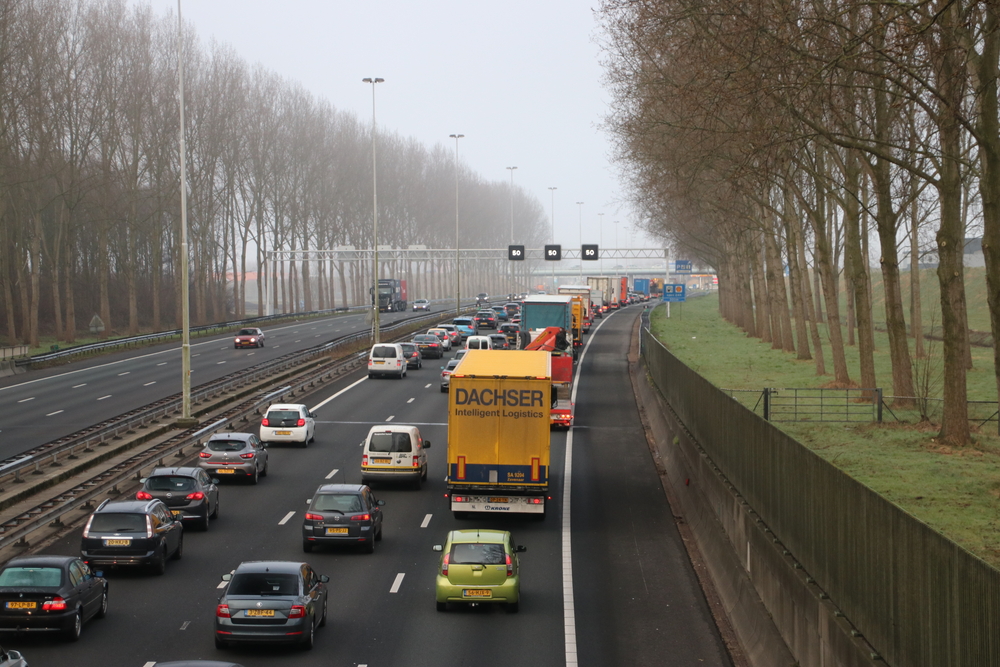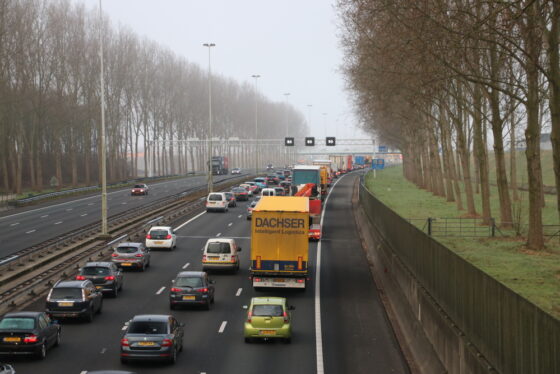Council of State rejects call for stricter nitrogen limits on construction projects


Environmental organisations have lost a case that would have required the Dutch government to impose tighter regulations on large planning projects such as roads and housing schemes to reduce nitrogen pollution.
The Council of State upheld the 25-kilometre limit used to assess the impact of nitrogen compound emissions on surrounding natural areas. Deposits that fall outside this area are not considered when working out how much nitrous oxide is produced by cars, factories and construction work.
Campaign groups such as Mobilisation for the Environment (MOB) argued that the limit should be scrapped because around 88% of nitrous oxide lands further than 25km from its source.
But the Council of State said the ruling was ‘reasonable’, because identifying the source of nitrogen deposits beyond the 25km line was too complicated and would restrict construction work too far.
Campaigners wanted the court to block a proposed extension to the A15 and A12 motorways, connecting Arnhem and Nijmegen to the coastal cities, arguing that it would generate too much pollution. The Council of State still has to rule on whether the project can go ahead.
Had the decision gone against the government, it would have forced project managers to consider the potential impact of building work on vulnerable nature zones hundreds of kilometres away when applying for environmental permits.
Environmental permits
The government has already had to tear up its environmental permit system following a ruling by the Council of State in 2019 that required constructors to keep nitrogen compound emissions below European limits.
That binding decision also prompted the cabinet’s decision to reduce the size of the agriculture industry by buying out livestock farms, which generate more than 40% of nitrogen compound emissions in the form of ammonia.
Infrastructure minister Mark Harbers announced last month that the government was putting all plans for new main roads and railways on hold until the nitrogen issue is resolved and new environmental regulations are in place.
Meanwhile, the coalition parties have frozen plans to buy out farmers in the wake of last month’s provincial election results, in which the farmers’ party BBB, which campaigned against compulsory buyouts, emerge as the largest group in all 12 provinces.
The pause was requested by the Christian Democrats (CDA), who lost almost half their vote share in the provinces, much of it to the BBB.
Wopke Hoekstra’s party is nevertheless expected to form governments with the BBB in several regions. Both parties have called for the deadline for reducing nitrogen compound emissions to be extended from 2030 to 2035, in order to give the farmers more perspective.
Thank you for donating to DutchNews.nl.
We could not provide the Dutch News service, and keep it free of charge, without the generous support of our readers. Your donations allow us to report on issues you tell us matter, and provide you with a summary of the most important Dutch news each day.
Make a donation